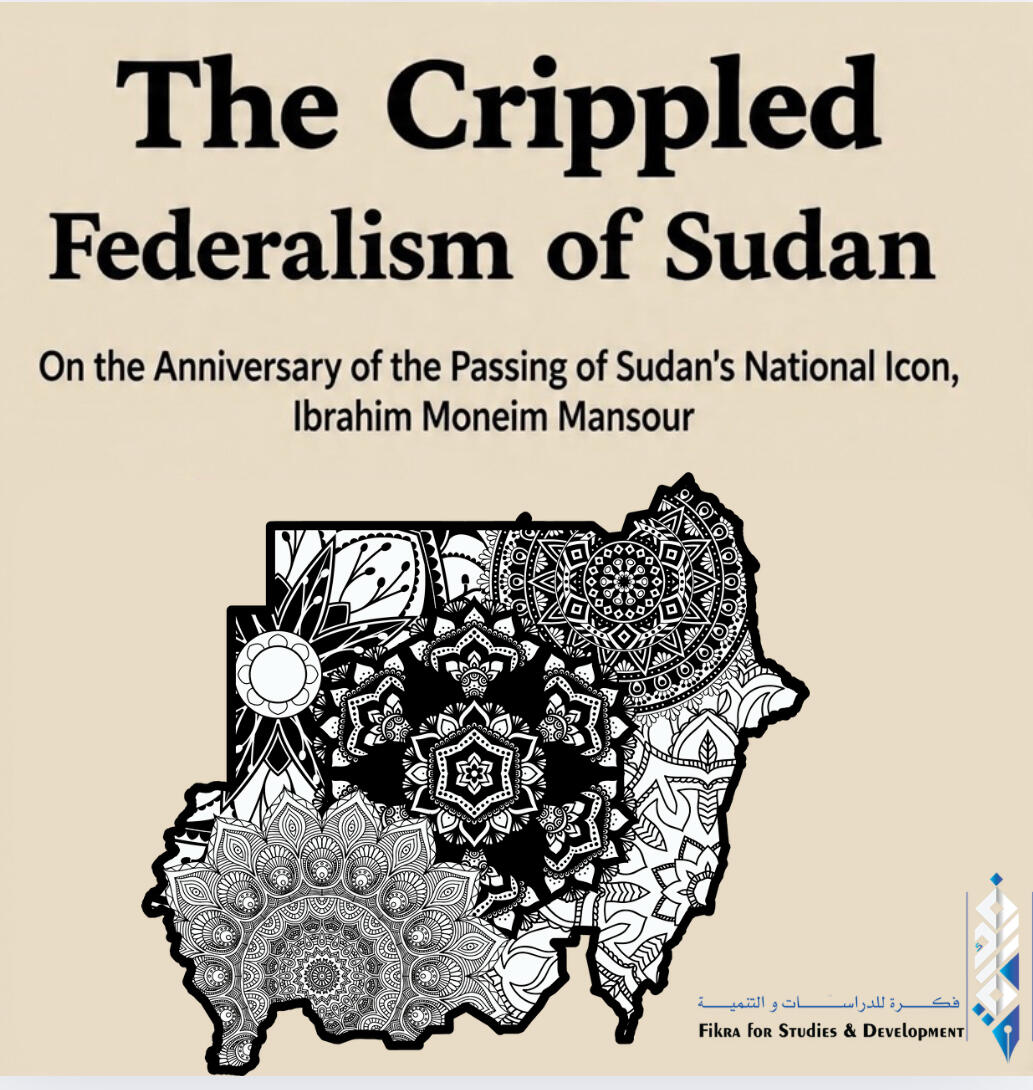The Crippled Federalism of Sudan
The Crippled Federalism of Sudan
On the Anniversary of the Passing of Sudan’s National Icon, Ibrahim Moneim Mansour
Dr. Elshafie Khider Saeed
16 July 2025
Fortifying oneself behind the walls of ideology, intellectual dogma, and political allegiance—while refusing to engage openly with others—not only breeds intellectual stagnation and the delusion of monopolizing truth but also robs one of the opportunity to recognize the good, and perhaps even the better, in others. This is a loss not just for the nation and society, but for the evolution of one’s own thinking.
This reflection lingered in my mind throughout my first meeting with the late national icon, Ibrahim Moneim Mansour, and every time I revisited his masterpiece of memoirs—a copy of which he had gifted me, though I do not know what became of it after the hordes of barbarism ransacked my home following the eruption of Sudan’s war. At the end of that initial meeting, I told him—a sentiment I have often repeated in my writings— “Unfortunately, Sudanese elites have been locked in near-fatal conflict for decades, failing to realize that the entire nation is now hanging by a thread, that an imminent danger threatens us all, that what unites us—even at the most basic level necessary for survival—is stronger than what divides us, and that the time has come to revisit convictions and meet with sincerity to forge a new reality in Sudan.”
In 2019, attorney Mohamed Shomeina approached the late Ibrahim Moneim Mansour seeking further clarification on his public critiques of the Salvation Government’s understanding and implementation of federalism, as well as the role of the National Fund for State Support. The late Mansour had described federal governance in his memoirs as a bird with two wings: power and wealth. He warned that imbalances in resource distribution would fuel secessionist demands in marginalized regions. Shomeina kindly shared with me a summary of Mansour’s responses, and I find it fitting to share them with readers on the fifth anniversary of his passing—on July 16—given their profound relevance as our country teeters on the brink of fragmentation.
The late visionary argued that successful federalism hinges on the fair distribution of resource revenues and financial authority between the central government and states, tailored to Sudan’s unique context rather than copied from nations without similar developmental disparities. For instance, Salvation leaders insisted on making Al-Fulah the capital of West Kordofan despite Al-Nuhud being more economically viable. When the late Turabi was asked why, he replied, “The oil is in Al-Fulah, and we don’t want its revenue to go elsewhere!”—a shortsighted view of federalism. Indeed, power and wealth are federalism’s twin wings, and their equitable sharing is fundamental. While conflict has always revolved around power, no stable federal system can satisfy impoverished peripheries without clear, agreed-upon mechanisms for wealth distribution. Tragically, peripheral elites are often duped with nominal authority—appointed as governors and administrators—only to later discover they wield power without resources. Even the meager funds allocated are squandered on vehicles, ceremonies, salaries, and perks, with no oversight. Budget shortfalls then lead to oppressive taxation, breeding resentment that escalates into armed rebellion or secessionist demands.
As for the State Support Fund, its true purpose was to strengthen federalism by post-war recovery and attracting investment for infrastructure. Yet the Salvation regime, as Mansour noted, weaponized it to control governors—starving non-compliant states of funds to ensure their failure, even if they had sound development plans. He also recounted attempting to legislate a commission for the Comprehensive Peace Agreement (CPA), modeled on global norms, to empower oversight of government compliance. But Salvation leaders resisted. When Ali Osman was asked to include seven southern representatives, he snapped, “Now the southerners want to control the north too!”—stunned when reminded this was stipulated in the CPA.
In closing, Ibrahim Moneim Mansour told Shomeina that under Bashir, federalism became a façade for corrupt centralized rule, exacerbating instability and national disunity. He substantiated this with key observations:
1. De Facto Centralization: Despite nominal federalism, real power was concentrated in Khartoum, leaving states financially and administrarily crippled.
2. Unjust Resource Allocation: Marginalized states like Darfur, South Kordofan, and Blue Nile were excluded from natural resource profits, fueling armed discontent.
3. Politicized Appointments: State governors, handpicked by Bashir’s party without local elections, lacked legitimacy and enabled cronyism.
4. Neglect of Peripheries: Federalism ignored marginalized regions, with military force replacing grievance redress.
5. Opaque Central Funding: Non-transparent fiscal transfers and absent accountability mechanisms entrenched corruption.
6. Erosion of Democracy: The absence of elected local governments stripped federalism of its core purpose: representing citizens’ will.


